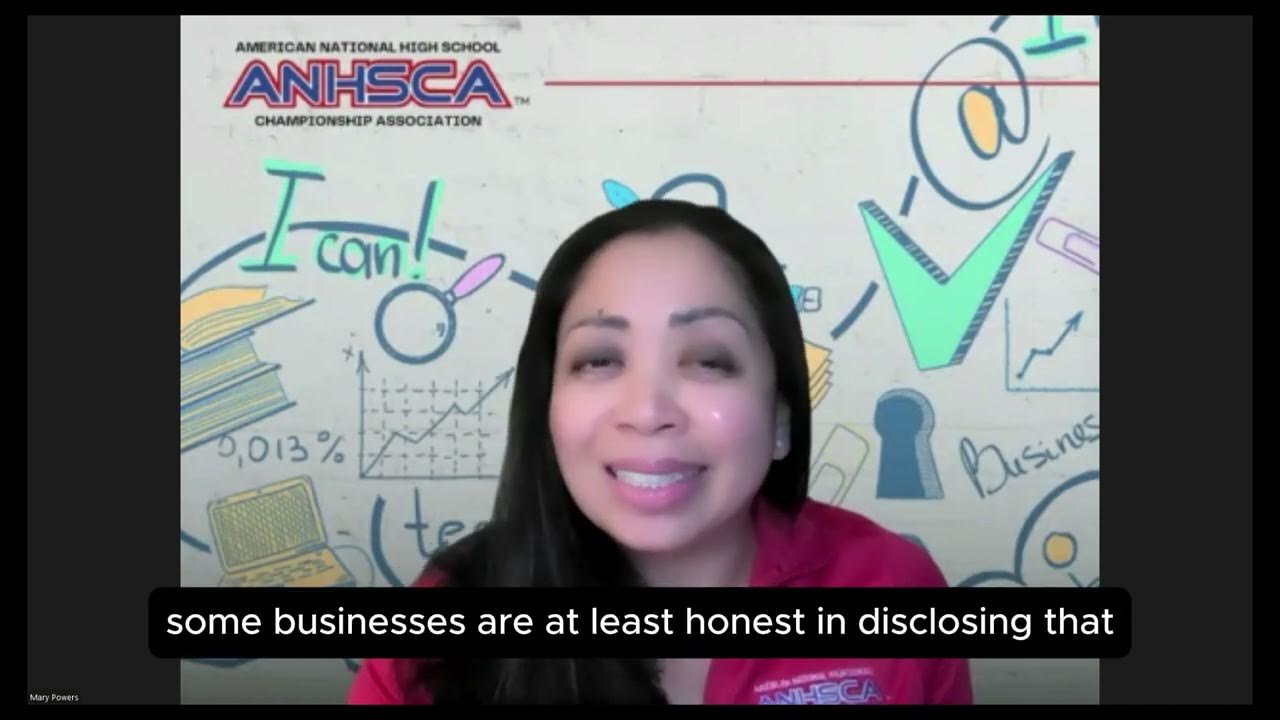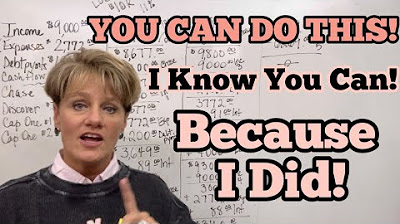Week 3 Discussion
Summary
TLDRAhmed aluri shares his pivotal financial lesson learned from credit card debt, which led to a profound realization of the importance of money management. His personal struggle with debt mirrors a broader issue in the US, where many rely on credit due to stagnant wages and rising costs. This reflects wealth inequality, with the rich benefiting from low-cost financial tools while others struggle. Ahmed's experience underscores the significance of financial responsibility and its impact on daily life and overall security.
Takeaways
- 💼 The speaker, Ahmed aluri, emphasizes the significance of money management after facing credit card debt.
- 🏛️ Financial decisions can lead to serious consequences, as learned from personal experience with debt.
- 💪 Overcoming debt required additional work and shifts, highlighting the effort needed to manage finances.
- 📈 The importance of budgeting was a key lesson learned from the experience with credit card debt.
- 🚫 The speaker advises against high-interest debts, which can exacerbate financial problems.
- 💰 Money plays a crucial role in overall security and well-being, as understood from the speaker's journey.
- 🌐 The issue of credit card debt is a larger trend in the US, affecting many people due to stagnant wages and rising costs.
- 💸 Wealth inequality is highlighted, with the rich benefiting from low-cost financial tools while others struggle.
- 🔗 Financial responsibility is tied to daily life and the way one lives and manages money.
- 🌟 The speaker concludes by reinforcing the lesson on the importance of financial responsibility.
Q & A
What was the speaker's first experience with money management issues?
-The speaker's first experience with money management issues was facing credit card debt.
How did the speaker's financial decisions lead to serious consequences?
-The speaker's financial decisions led to serious consequences by accumulating credit card debt, which required them to work more and pick up additional shifts, causing exhaustion.
What was the turning point for the speaker in understanding the importance of money management?
-The turning point for the speaker was the realization of the impact of their financial decisions on their well-being and the need to work extra to manage their debt.
What financial lessons did the speaker learn from their experience?
-The speaker learned the value of budgeting, avoiding high-interest debts, and understanding the role of money in overall security.
How does the speaker's experience reflect a larger trend in the United States?
-The speaker's experience reflects a larger trend of many people facing credit card debt due to stagnant wages and rising costs, highlighting wealth inequality in the U.S.
What is the role of financial responsibility in daily life according to the speaker?
-According to the speaker, financial responsibility is crucial as it ties into daily life, influencing the way one lives and manages their money.
Why do many people in the U.S. rely on credit, as mentioned by the speaker?
-Many people in the U.S. rely on credit due to stagnant wages and rising costs, which make it difficult for them to manage their finances without incurring debt.
What does the speaker suggest about the availability of financial tools for different income groups?
-The speaker suggests that there is a disparity in the availability of low-cost financial tools, with the rich benefiting more from them, while others struggle financially.
How does wealth inequality affect the financial stability of individuals, as discussed by the speaker?
-Wealth inequality affects financial stability by providing the rich with better access to financial tools, while others face challenges in managing their finances, leading to a reliance on credit.
What is the main takeaway from the speaker's discussion on financial management?
-The main takeaway is the importance of financial responsibility and its impact on daily life, emphasizing the need for effective money management to ensure security and well-being.
Outlines

Cette section est réservée aux utilisateurs payants. Améliorez votre compte pour accéder à cette section.
Améliorer maintenantMindmap

Cette section est réservée aux utilisateurs payants. Améliorez votre compte pour accéder à cette section.
Améliorer maintenantKeywords

Cette section est réservée aux utilisateurs payants. Améliorez votre compte pour accéder à cette section.
Améliorer maintenantHighlights

Cette section est réservée aux utilisateurs payants. Améliorez votre compte pour accéder à cette section.
Améliorer maintenantTranscripts

Cette section est réservée aux utilisateurs payants. Améliorez votre compte pour accéder à cette section.
Améliorer maintenantVoir Plus de Vidéos Connexes

How to Pay Off A Credit Card with 0 Cash Flow!

Lesson 2 Credit Cards, Interest and Debt

She Did, Too! $28,000+ In Credit Card Debt Pays Off Within 6 Months

How to Pay Off Your Maxed Out Credit Cards with ZERO Cashflow!!!| @JustJWoodfin

HOW TO ENTER YOUR RICH GIRL ERA | money mistakes, mindset and habits + how I invest my money!

Lesson 2: Investing, Credit, and Debt Management
5.0 / 5 (0 votes)
